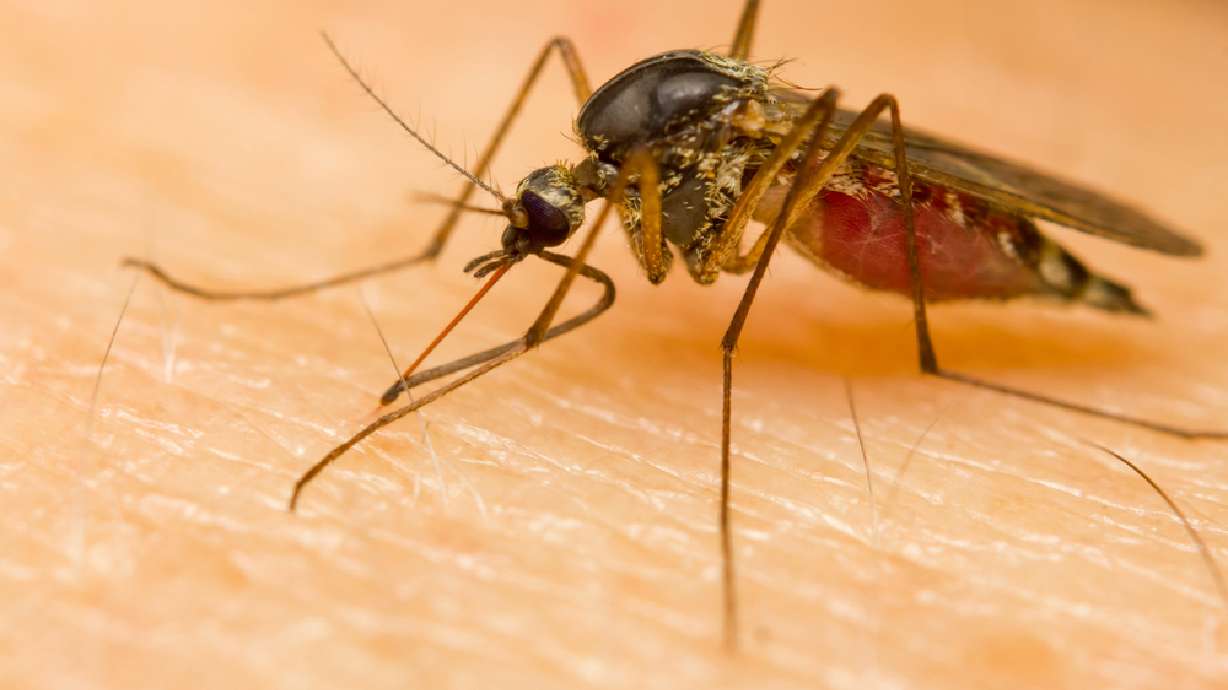Estimated read time: 3-4 minutes
This archived news story is available only for your personal, non-commercial use. Information in the story may be outdated or superseded by additional information. Reading or replaying the story in its archived form does not constitute a republication of the story.
SALT LAKE CITY — While there still haven't been any human cases of the West Nile virus in Utah this year, health officials are urging Utahns to use precautions, after they say the virus has been detected in over 100 mosquito pools across the state.
A mosquito pool is a group of mosquitoes caught in one trap and then tested for possible viruses. The virus was found in a total of 114 pools across Utah as of Monday; however, state health officials didn't specify locations, or whether some regions have more virus-positive pools than others.
In its July 28 report, the agency wrote the virus had been detected in 56 pools. Most of the pools were in Davis (35) and Salt Lake (19) counties but also found within the Summit County and Weber-Morgan health districts.
"West Nile virus is a yearly presence in Utah and it isn't going away," said Hannah Rettler, a vectorborne/zoonotic epidemiologist for the Utah Department of Health, in a statement Monday.
Humans typically become infected through the bite of an infected mosquito, although not every mosquito carries the virus. Since 2009, Utah has averaged about 12 human cases of the West Nile virus. There were 21 cases in 2019 and just two last year, according to Rettler.
The cases over the past decade have ranged in severity. Most people — about three-quarters of people — don't notice any symptoms. Others may feel flu-like symptoms or worse. Some of the recent Utah cases have been "quite severe" and even have resulted in death, Rettler said.
State health officials said elderly people and people with poor immune systems are at higher risk of dealing with West Nile virus symptoms, such as high fever, severe headache and stiff neck, disorientation and confusion. Anyone who experiences those symptoms is encouraged to contact a health care provider immediately.
The health department's announcement Monday comes after the virus has also been reported in neighboring states. Southeastern Idaho Public Health reported in July the virus was detected in a mosquito pool collected from Bear River County, Idaho, which borders Utah.
Meanwhile, those who analyze mosquitoes said earlier this year that this summer is the worst they've seen in terms of the number of mosquitoes in the state. Abatement crews said hot temperatures led to spikes in Utah's mosquito population.
The state health department said people can take steps to avoid being bitten by a mosquito that may carry the virus in Utah, including:
- Wear long-sleeved shirts, long pants and socks while outdoors.
- Use insect repellent with 20% to 30% DEET. Repellents aren't recommended for children younger than two months old.
- Rescheduling outdoor activities to avoid the peak time for mosquitoes, which are from dusk to dawn.
- Remove puddles of water or standing water that may be in pet dishes, flower pots, buckets, tarps, tires or wading/swimming pools. This is because mosquitos lay their eggs in standing water.
- Report bodies of stagnant water to your local mosquito abatement district.
- Make sure all doors, windows and screens are in good condition and fit tightly so mosquitos can't fly inside a home.
More tips and information can be found here.










